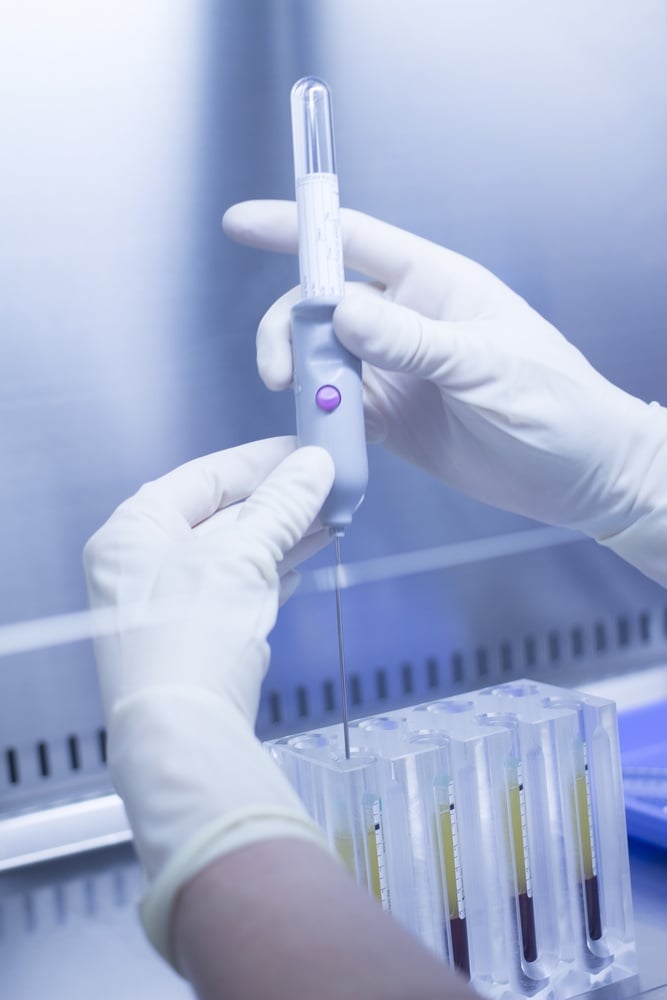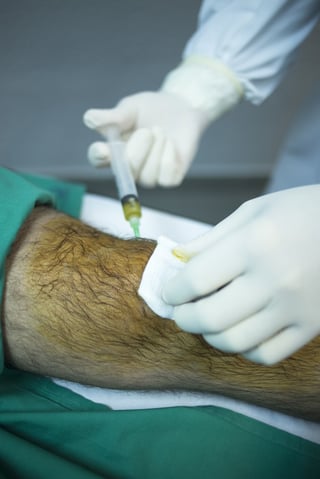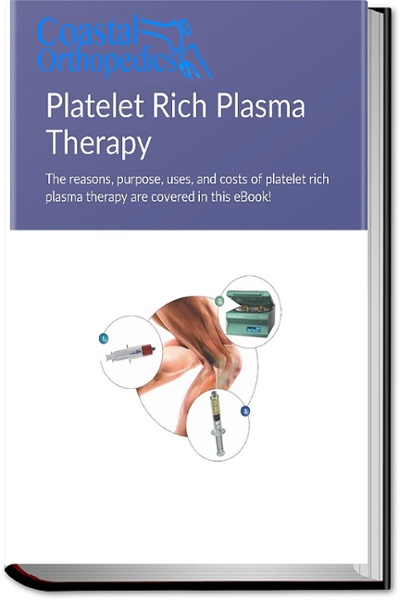Topics:
Search for topics or resources
Enter your search below and hit enter or click the search icon.
May 23rd, 2016 | 2 min. read

If you follow professional sports, you may have heard about platelet rich plasma therapy, or PRP — a therapy credited by many world-class athletes for accelerating the repair of their sports injuries. Today, more and more orthopedists are offering PRP injections to help treat non-pro sports injuries and arthritis — but what exactly is PRP, and is it right for you?
Platelet rich plasma therapy (PRP) is a sports medicine treatment that emerged in the 1980s and gained popularity in the last 20 years because of its use by high-profile athletes like Tiger Woods and Kobe Bryant.
PRP therapy is, essentially, the preparation of an enriched supply of a patient's own blood, which can be injected at the site of an injury to help promote faster healing of chronic tissue injuries like tendinitis, sprains, and some milder forms of arthritis.
Platelets (also called thrombocytes) are components of our blood (plasma) that contain proteins called growth factors. These growth factors play an important role in signaling the body to heal itself through clotting, controlling inflammation, and building and healing tissue and skin.
PRP therapy focuses on delivering more growth factors to the site of an injury in order to trigger this healing. It involves the preparation of an enriched supply of a patient's own platelets. This platelet enriched plasma (PRP) contains five to 10 times the normal concentration of platelets.
Once prepared, PRP is injected to the site of the injury to help reduce inflammation and promote faster healing.

In some cases, patients who receive PRP treatment may be able to postpone or avoid joint replacement surgery or other invasive procedures like knee arthroscopy, total knee replacement, or tennis elbow surgery.
PRP therapy can be a helpful healing alternative for patients who do not want or cannot have open or arthroscopic surgery.
PRP therapy can be performed in an orthopedist's office and involves the following:
The platelets and other growth factors then begin to do their work, signaling your body to stimulate cell growth and cell repair at the injury site.
PRP therapy has several benefits:

Platelet rich plasma injection therapy has been used to help support the healing of:
Depending on the extent of your injury, you may need just one PRP therapy injection or your doctor may recommend several. You can expect to return to normal activities and sports within a few days to a few weeks.
PRP therapy may also be used during some orthopedic surgeries to help promote faster healing.
Coastal Orthopedics now offers Orthopedic Biologics PRP therapy to patients at our office. Biologics PRP injections are available to treat the following conditions and injuries:
Note: Because PRP is still a new (but promising) treatment, it is not currently covered by most insurance plans. We currently offer it as a cash-only therapy.
Article written by: Rob Williams, MD
Learn more by downloading our FREE eBook on PRP Therapy here:

If you're interested in learning more about Biologics PRP therapy and how it might help you with your recovery, please call our Corpus Christi office at 361.994.1166. Or click the link below to request an appointment.
Dr. Williams has been practicing orthopedic surgery in Corpus Christi since 1998. After graduating from Texas Tech hereceived his medical degree from the University of Texas at San Antonio. At the prestigious Campbell Clinic located at the University of Tennessee, Dr. Williams completed not only an Orthopedic Surgery Residency, but an additional year of Fellowship Training in Spine Surgery. Dr. Williams is dedicated to creating an excellent patient experience in the office or in the surgery suite.
Topics: